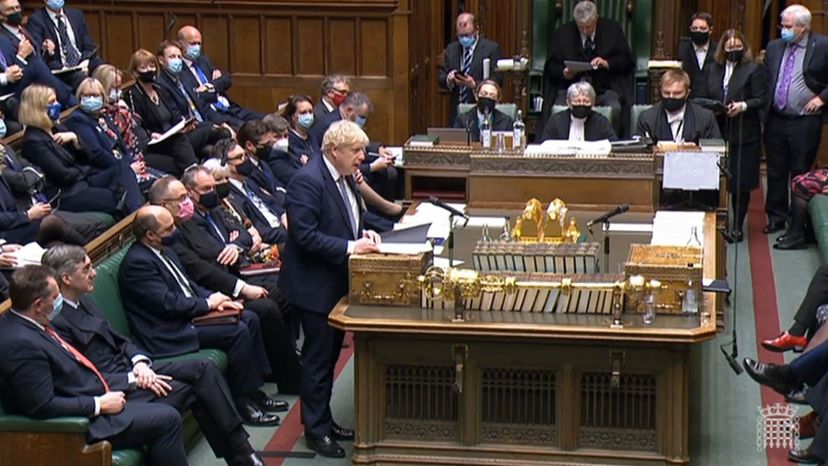The U.S. Constitution intended to create a balance of power across three branches of government: the legislative (Congress), the judicial (the court system) and the executive (the president, vice president and cabinet).
That division of power came from, in part, the parliamentary model that existed in the United Kingdom in the 18th century when the founders drafted the Constitution. The U.K. wasn't a democracy at the time, but in addition to a monarch (king or queen), it had a powerful Parliament (legislative assembly) composed of representatives at least nominally elected by the aristocracy.
Advertisem*nt
"The U.K. divided power into the one (the monarch), the few (the House of Lords) and the many (the House of Commons)," Dickson says. "The U.S. took that and modified it."

Instead of a monarch as the chief executive, the U.S. has a president. And instead of a House of Lords and House of Commons, America has a Senate and House of Representatives. (The U.K. didn't have a Supreme Court until 2009. Until then, judicial power was held by Parliament.)
This American style of democracy is called the "presidential model," since the president is the chief executive and is not elected at the same time as members of Congress. As the head of the executive branch, the president also exercises certain powers, like the ability to veto bills that Congress passes, to appoint members to the Supreme Court, and to serve as commander in chief of the military.
There are nearly 80 democracies in the world that follow the exact same presidential model as the United States, including Mexico, Brazil and the Philippines. An additional 23 countries have both a president and a prime minister, with the president acting as the chief executive. France, Russia and South Africa are examples of these "semi-presidential" democracies.
The second major type of modern democracy is the "parliamentary model," in which the people don't vote directly for the chief executive. Instead, they vote for the members of Parliament, and whichever political party wins a majority of seats in Parliament gets to choose the chief executive, who is called the prime minister. The prime minister is usually the head of the political party in power.
There are 36 parliamentary republics in the world, plus an additional 36 constitutional monarchies, where there's both a prime minister and a monarch, who acts as a figurehead with no real power. Ireland, Fiji and Bangladesh are examples of countries whose government derives from the parliamentary model. The modern U.K. is a constitutional monarchy.
One major difference between presidential and parliamentary democracies is that parliamentary systems have fewer checks on power since the same party controls the executive and legislative branches. That means there's generally less gridlock in parliamentary politics, which is great for the party in power, but less so for the minority opposition.
"The presidential system is set up to move slowly," Dickson says. "Nobody could just ram things through and overwhelm minority rights."
Whether it's a presidential or parliamentary system, what makes a modern democracy a true democracy is faithful adherence to a set of democratic principles: the rule of law (constitutionalism), representation based on free and fair elections, and guaranteed rights, including freedom of speech, press and religion. By that measure, some countries are democracies in name but not in practice.
Interestingly, citizens of both the U.S. and the U.K. are among 12 countries where the majority of people are dissatisfied with how democracy is working, according to a 2019 Pew survey.
FAQs
What are the advantages and disadvantages of different types of democracies and republics?
Different types of democracies and republics have their own advantages and disadvantages. For example, parliamentary systems may have fewer checks on power, leading to less gridlock, but potentially risking minority rights.
How did the U.S. Founding Fathers view direct democracy?
The U.S. Founding Fathers were suspicious of direct democracy, believing that ordinary people making important political decisions could lead to issues. They preferred a representative democracy where elected representatives exercise political power.
Now That's Cool
Thomas Jefferson was a fan of Athenian-style democracy and wanted to organize the U.S. into "wards" of 100 people, where local matters would still be decided by popular vote. "Let the national government be entrusted with the defense of the nation and its foreign and federal relations; the state governments with the civil rights, laws, police and administration of what concerns the state generally; the counties with the local concerns; and each ward directs the interests within itself," wrote Jefferson in 1816.
Advertisem*nt